Abstract
The impact of changes in the delivery of well child health services by a rural health department on the reported health status, immunization status, and patterns of health care use is evaluated for poor children born in 1981, when well child clinic services were reduced. Using birth certificate records, all 1981 resident births were enumerated for the case county in Maryland and for a demographically similar comparison county that had continued to operate health department well child clinics. Trained local interviewers tracked and interviewed mothers or guardians of the 1981 cohort. Data were obtained on 567 of 589 eligible children, reflecting a 96 percent response rate. Children in each county were defined as poor if their mothers reported receiving AFDC (Aid to Families with Dependent Children), food stamps, or medical assistance or reported annual household incomes of below +5,000. This poverty status indicator was significantly correlated with health department use in the comparison county. Findings indicate that mothers of poor children in both counties were as likely as mothers of nonpoor children to assess their 2-year-old's health status as good, to identify a regular source of preventive care, and to report complete immunizations for their toddler. Although many private physicians in the case county appear to be seeing poor children in their offices, the distribution of study children among physicians was highly skewed. Out of 19 physicians or health facilities in the case county, one pediatrician was reported as the primary source of pediatric care for 52 percent of the 2-year-olds, one-third of whom were poor.(ABSTRACT TRUNCATED AT 250 WORDS)
Full text
PDF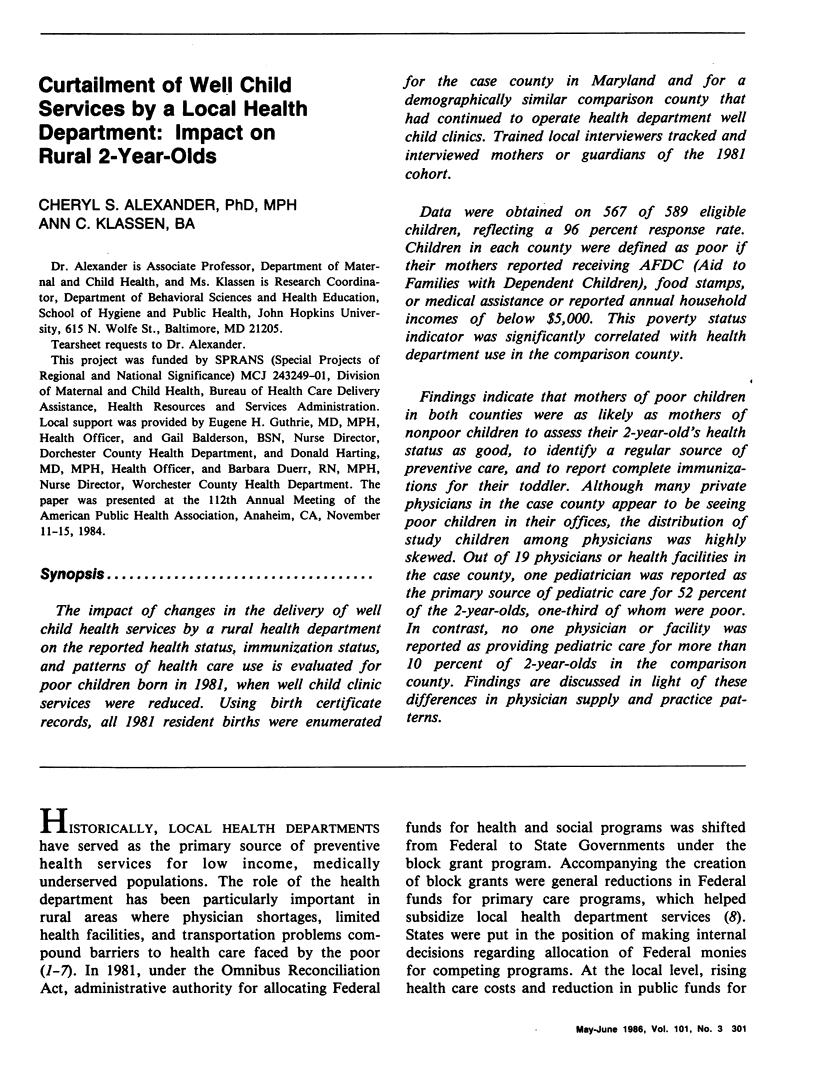
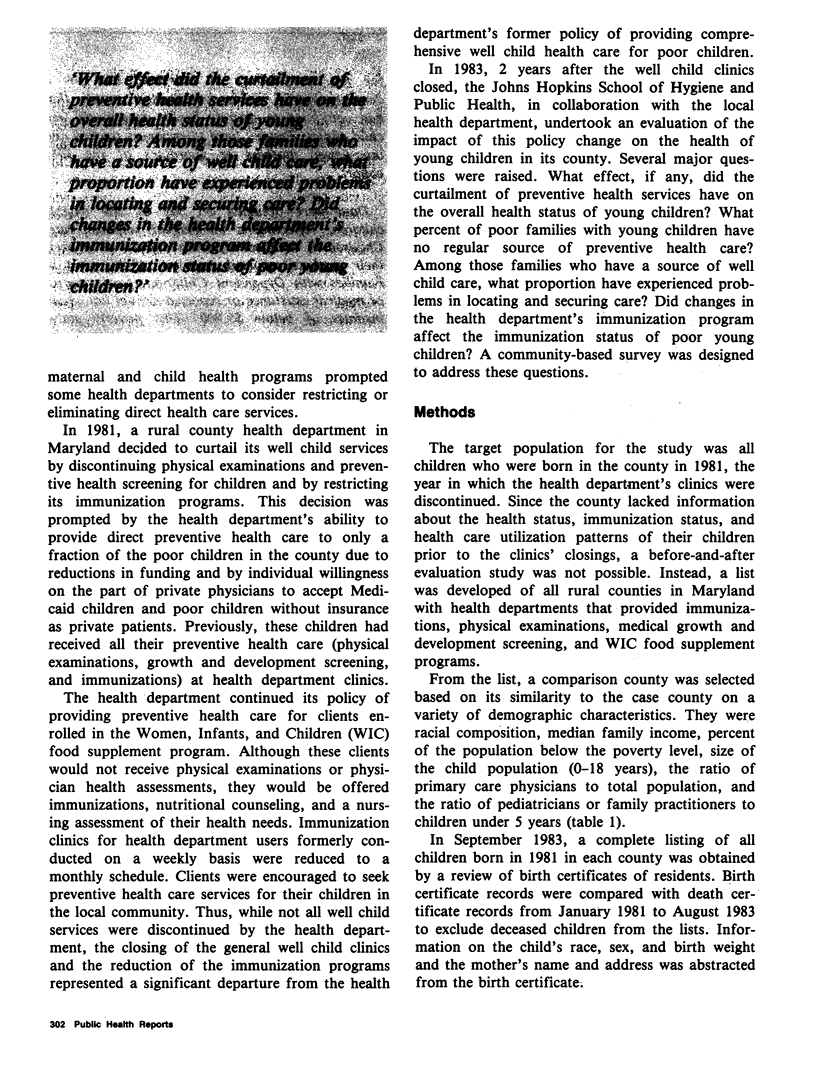
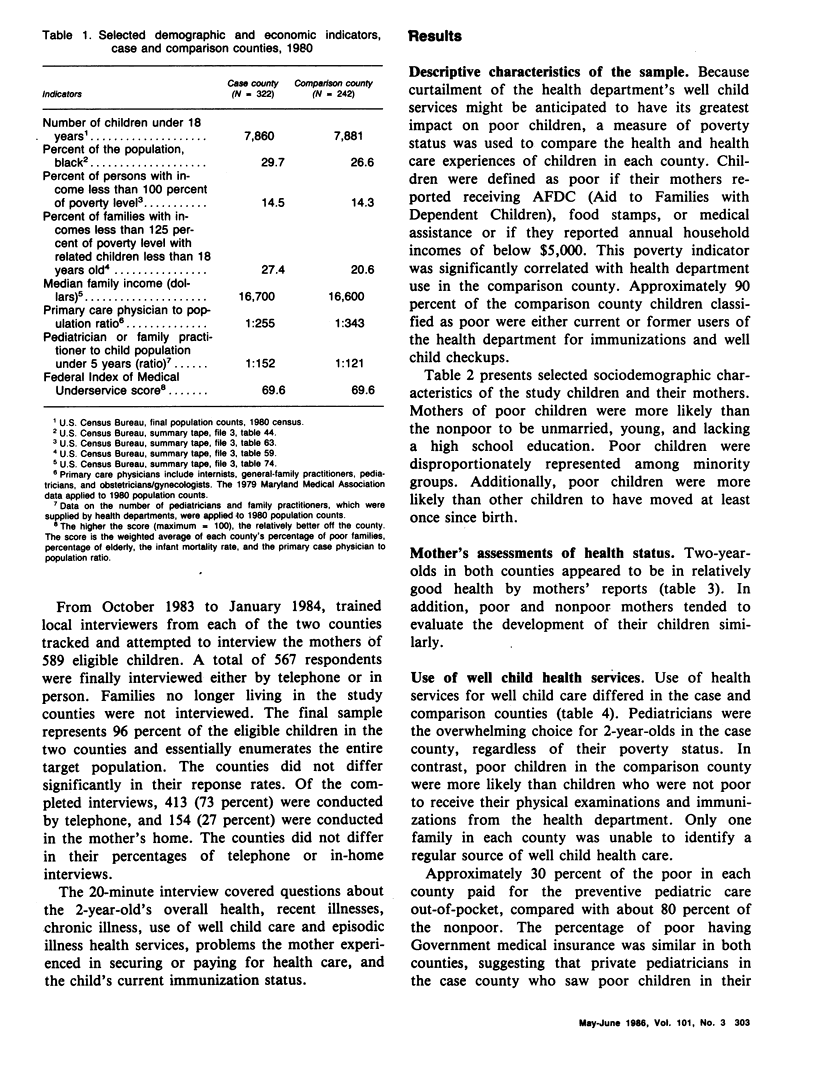
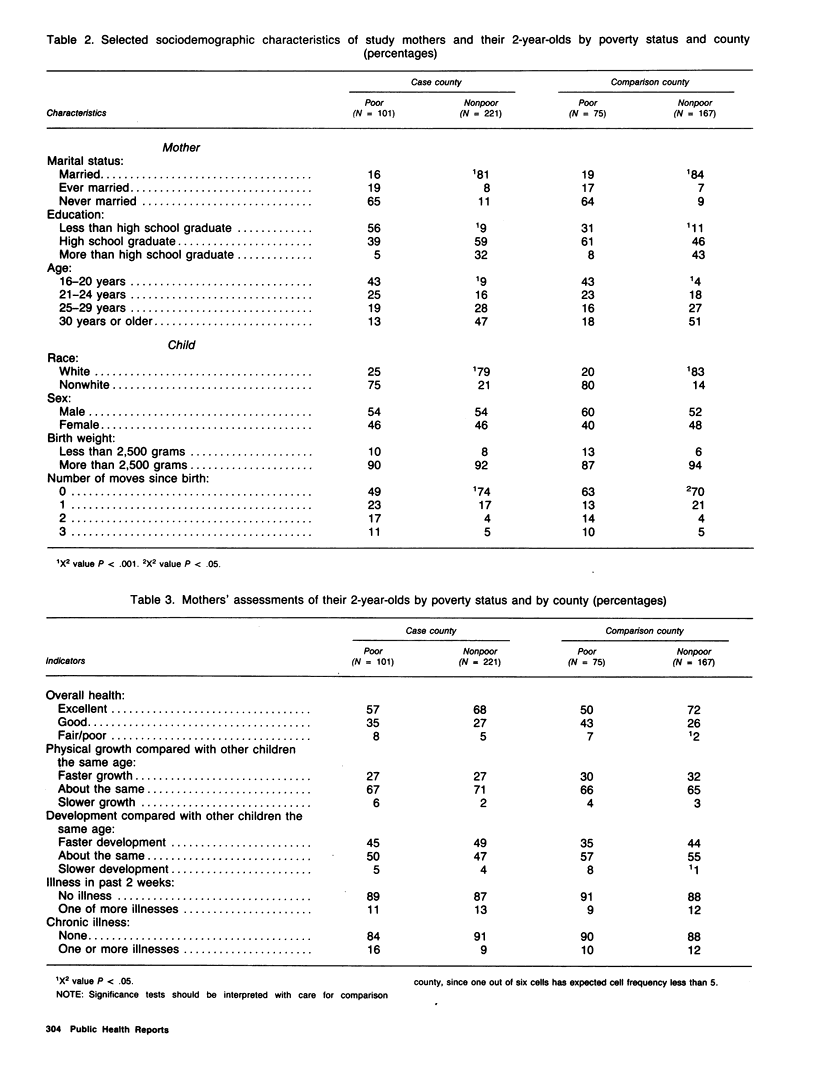
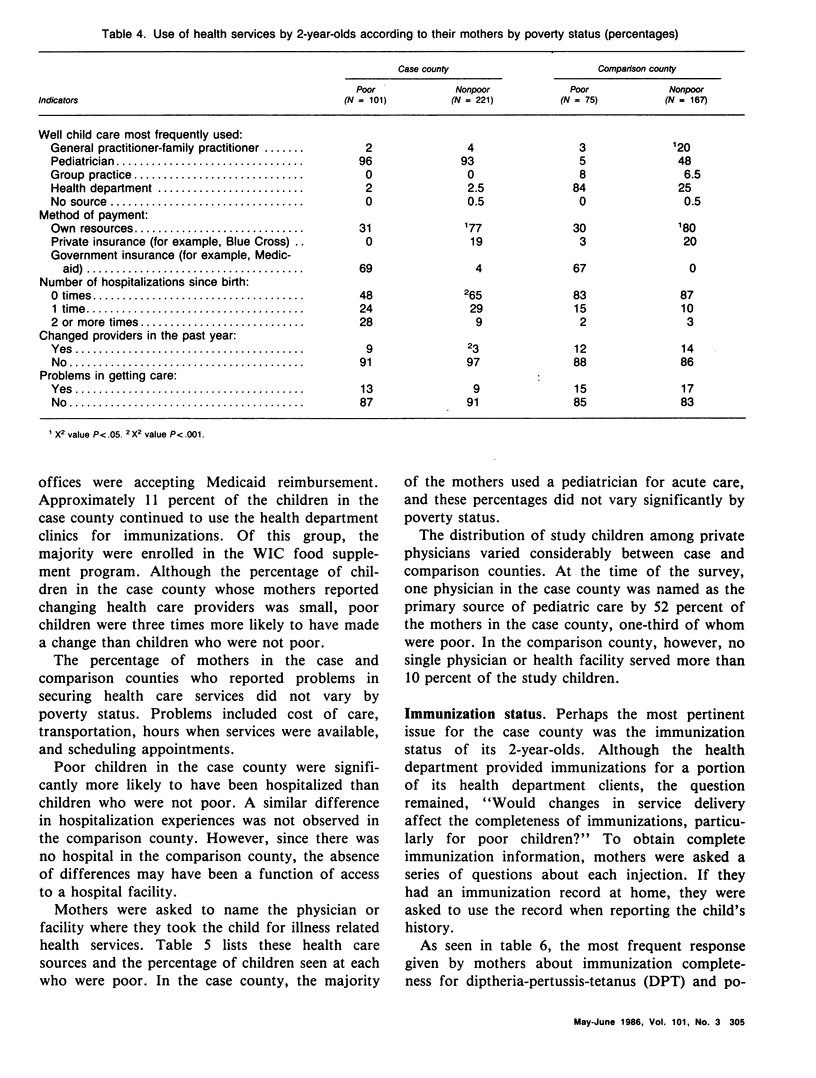
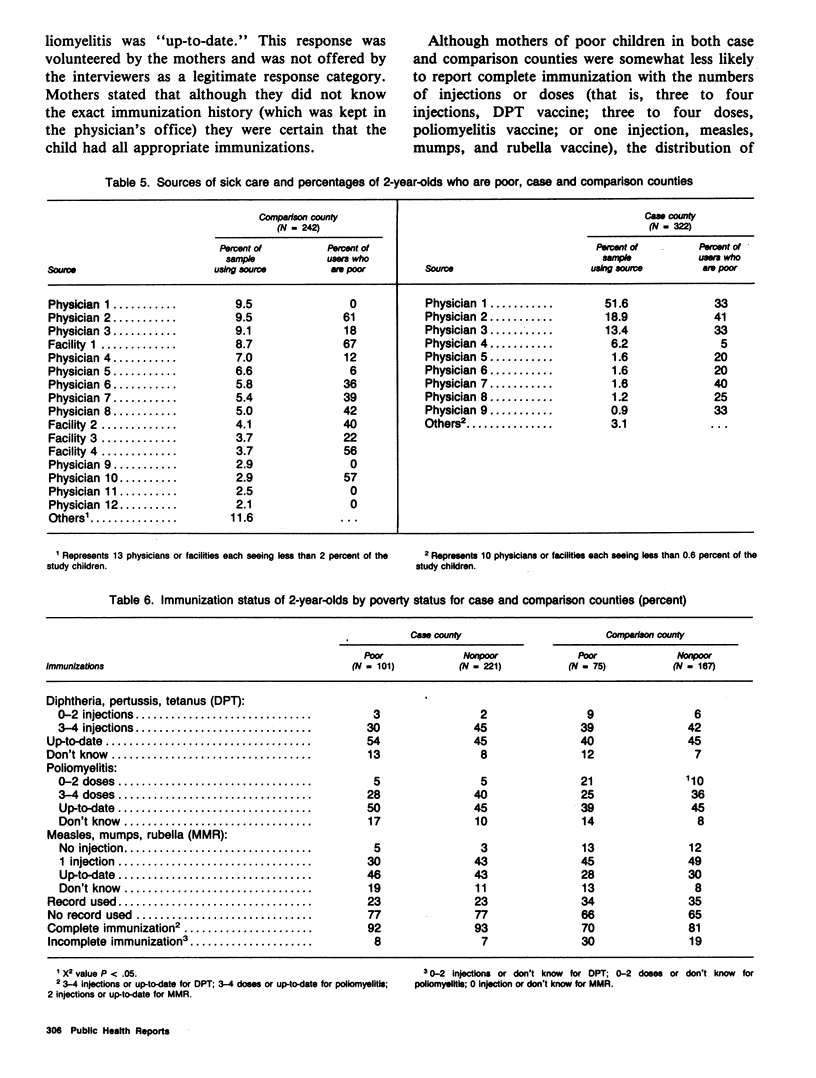
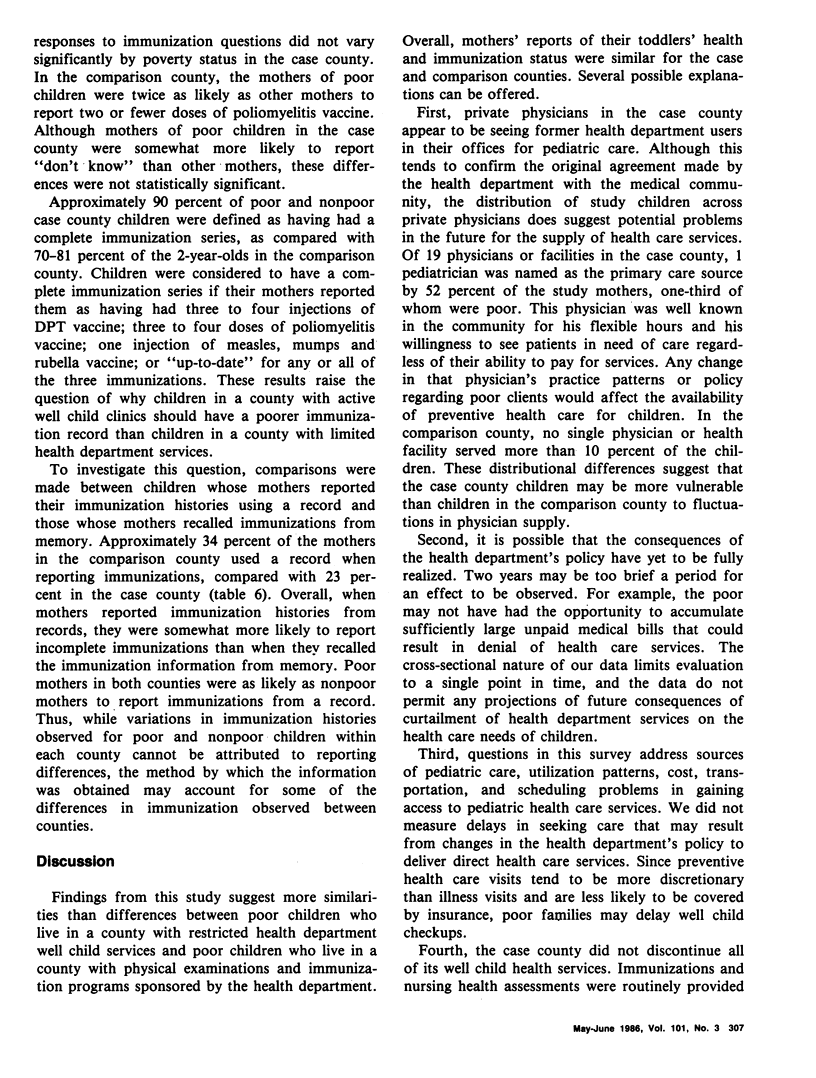
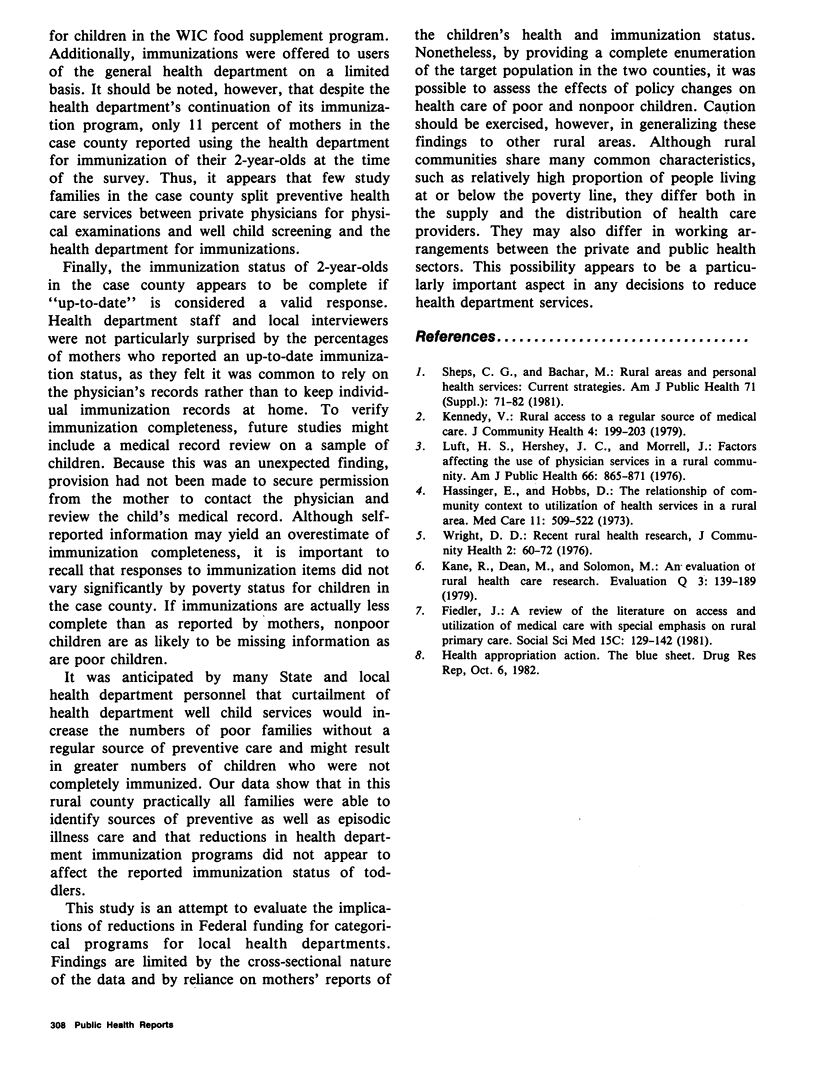
Selected References
These references are in PubMed. This may not be the complete list of references from this article.
- Fiedler J. L. A review of the literature on access and utilization of medical care with special emphasis on rural primary care. Soc Sci Med C. 1981 Sep;15(3):129–142. doi: 10.1016/0160-7995(81)90028-9. [DOI] [PubMed] [Google Scholar]
- Hassinger E., Hobbs D. The relation of community context to utilization of health services in a rural area. Med Care. 1973 Nov-Dec;11(6):509–522. doi: 10.1097/00005650-197311000-00006. [DOI] [PubMed] [Google Scholar]
- Kane R., Dean M., Solomon M. An evaluation of rural health care research. Eval Q. 1979 May;3(2):139–189. doi: 10.1177/0193841x7900300201. [DOI] [PubMed] [Google Scholar]
- Kennedy V. C. Rural access to regular source of medical care. J Community Health. 1979 Spring;4(3):199–203. doi: 10.1007/BF01322965. [DOI] [PubMed] [Google Scholar]
- Luft H. S., Hershey J. C., Morrell J. Factors affecting the use of physician services in a rural community. Am J Public Health. 1976 Sep;66(9):865–871. doi: 10.2105/ajph.66.9.865. [DOI] [PMC free article] [PubMed] [Google Scholar]
- Sheps C. G., Bachar M. Rural areas and personal health services: current strategies. Am J Public Health. 1981 Jan;71(1 Suppl):71–82. doi: 10.2105/ajph.71.1_suppl.71. [DOI] [PMC free article] [PubMed] [Google Scholar]
- Wright D. D. Recent rural health research. J Community Health. 1976 Fall;2(1):60–72. doi: 10.1007/BF01349493. [DOI] [PubMed] [Google Scholar]


